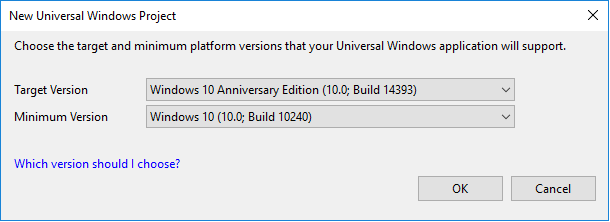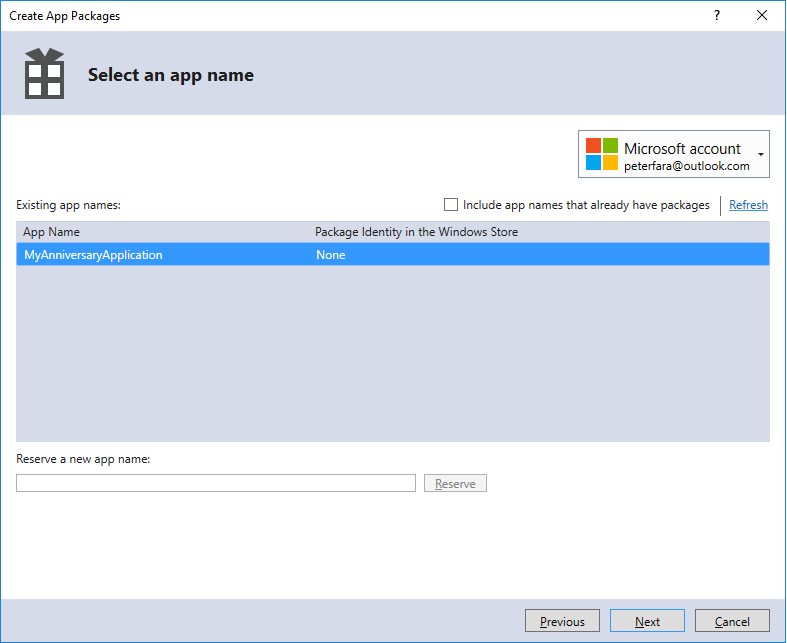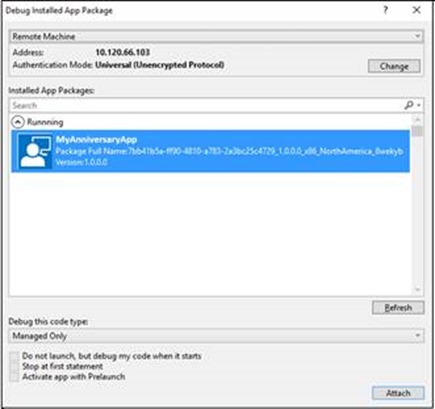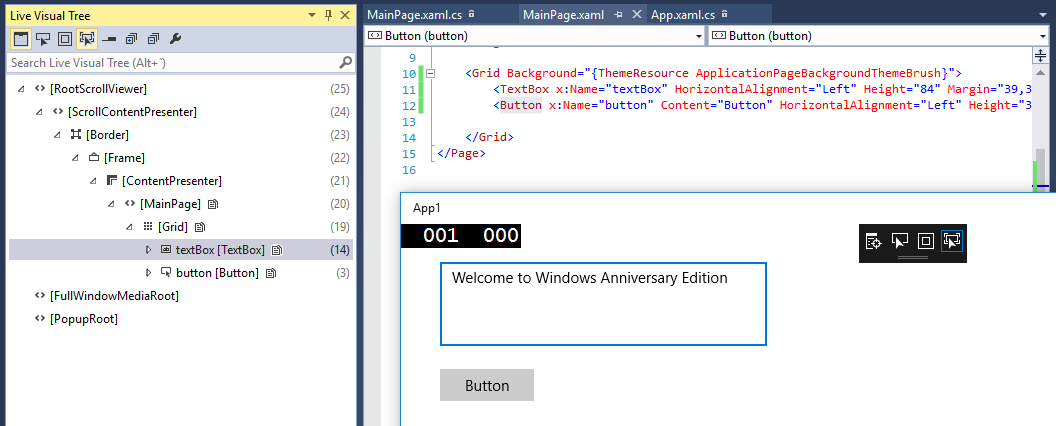Today we are releasing an update to the Universal Windows App development tools in Visual Studio 2015 Update 3 to enable you to build apps that target the Windows 10 Anniversary SDK (build 14393). In addition, the Windows Store is now open for submissions of apps that target the Windows 10 Anniversary Update SDK.
The Windows 10 Anniversary Update bring 2700+ enhancements to Windows 10—including Cortana, Inking, Edge. This brings an opportunity to build apps for the more than 350 million users running Windows 10 on their desktops, phones, Xbox, HoloLens, and other devices. For more information about the enhancements to the Windows SDK, see Kevin Gallo’s blog post.
In this release of the Universal Windows App development tools (version 1.4.1), we have added enhancements to the Store submission workflow such as enabling Azure Active Directory integration for dev center accounts, support for large package deployment (useful for large games), and much more. I’ll cover some key highlights in this post.
If you have never installed Visual Studio 2015 before then go to Windows Dev Center to install. If you already have Visual Studio 2015 installed, a notification will appear to prompt you to install, you can modify your Visual Studio installation to upgrade to version 1.4.1 of the tools, or you can go to the Windows Dev Center to upgrade the tools.
Windows 10 Anniversary Update SDK Integration
Visual Studio supports the Windows 10 Anniversary Update release. By default, all projects created using Visual Studio 2015 will now target the new SDK, and users will be able to migrate their existing projects to take advantage of new APIs and features.
Improved integration with Windows Store
Once the project has been associated with the Windows Store, you will no longer need to sign in to create a package to submit to the Store. When you first create a package to submit to the Windows Store, you can now sign in with Azure Active Directory credentials for an AAD Store account. In addition, Windows Store credentials are shared with Visual Studio. This means that as long as you are signed in to Visual Studio, the tokens will still be valid in the packaging wizard. Finally, if you associate your application with a product in the Store one time, you will never need to sign in again. The association persists throughout the life of the project
Large game deployments to Xbox
This release enables new advanced remote deployment options so game developers can more quickly iterate on changes for large games. With Visual Studio 2015 Update 3, and the Windows 10 Anniversary Update SDK, you can now copy files to the remote device using a new faster underlying file transfer protocol. In addition, you can register a package layout directly from a network share to negate the requirements of file transfer altogether.
For more information about leveraging these remote deployment options, check out the latest documentation on the Windows Developer center.
Attach the debugger to application
You can now debug apps that were already running on devices such as IoT, XBOX, and HoloLens from within Visual Studio.
XAML UI Debugging improvements
Whenever the focus changes in your app, the new Track Focus feature in the Live Visual Tree will cause selection in the Live Visual Tree to update to the currently focused element. This makes it easier to map between the running app and the live visual tree. These features are available for both UWP and WPF.
Design support for Indirect Resources
You can now view and use indirect resources in your XAML code. Static Resources referencing other resources in your XAML apps will be fully rendered in the designer, have Intelligence support, and preview in the Resources Pane in Blend. You can also view the original source of an indirect resource with the Resources Pane.
.NET Native for Universal Windows Apps
.NET Native 1.4 is a minor servicing release that improves performance, addresses several customer reported bugs and improves Release build compilation times of large apps. XAML applications and Unity games that use .NET Native 1.4 will have better runtime performance. These improvements were achieved by making both reflection and native API calls faster.
Tell us what you think
With today’s launch, we continue our goal to make Windows and Visual Studio more open than ever and provide you the tools to make Windows your home. Try out the tools, and get started building and submitting apps today.
As always, we welcome your feedback. For problems, let us know via the Report a Problem option in Visual Studio. For suggestions on how we can make Visual Studio even better for building Universal Windows apps, let us know through UserVoice.
 |
Pete Faraday, Program Manager, Visual Studio
Pete works on the Windows Tools team within Visual Studio. Originally from the UK, he has been in Seattle for the last 20 years. In his spare time, he enjoys coffee, home repairs, and life near the waterfront. |







0 comments